From Market To Home - 1 Class 4 Worksheet EVS Chapter 15
| Table of contents |

|
| Fill in the Blanks |

|
| True or False |

|
| Matching |

|
| Short Answer Questions |

|
| Multiple Choice Questions |

|
| Categorization |

|
Fill in the Blanks
(i) Vegetables that spoil quickly are often high in ___ content.Ans: water
(ii) To keep vegetables fresh, sellers often ___ them with water.
Ans: sprinkle
(iii) Vegetables are sorted to ensure that only the ___ ones are sold.
Ans: ripe
(iv) The place where fresh vegetables are bought in bulk is called a ___.
Ans: mandi
(v) Keeping vegetables in a ___ place helps them stay fresh longer.
Ans: cool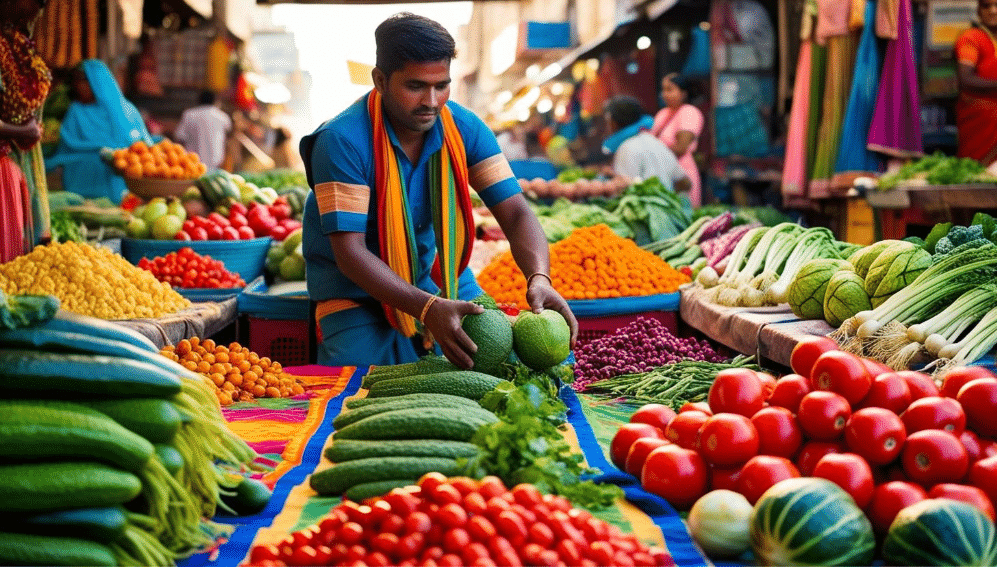
True or False
(i) Fresh vegetables should be kept in a warm place.Ans: False
(ii) Sprinkling water on vegetables can help keep them fresh.
Ans: True
(iii) Potatoes and onions spoil faster than tomatoes and spinach.
Ans: False
(iv) It is important to sell the previous day’s vegetables first to avoid waste.
Ans: True
(v) Vegetables that are not fully ripe should be sold immediately.
Ans: False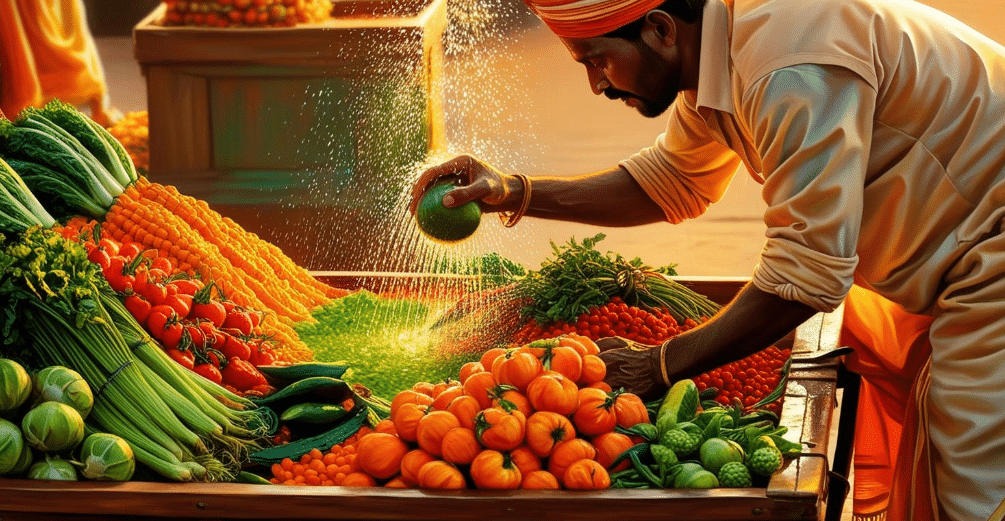
Matching
Match the vegetable to its characteristic:(i) Potato
(a) Spoils quickly
(b) Lasts longer
Ans: (b) Lasts longer
(ii) Spinach
(a) Spoils quickly
(b) Lasts longer
Ans: (a) Spoils quickly
(iii) Tomato
(a) Spoils quickly
(b) Lasts longer
Ans: (a) Spoils quickly
(iv) Onion
(a) Spoils quickly
(b) Lasts longer
Ans: (b) Lasts longer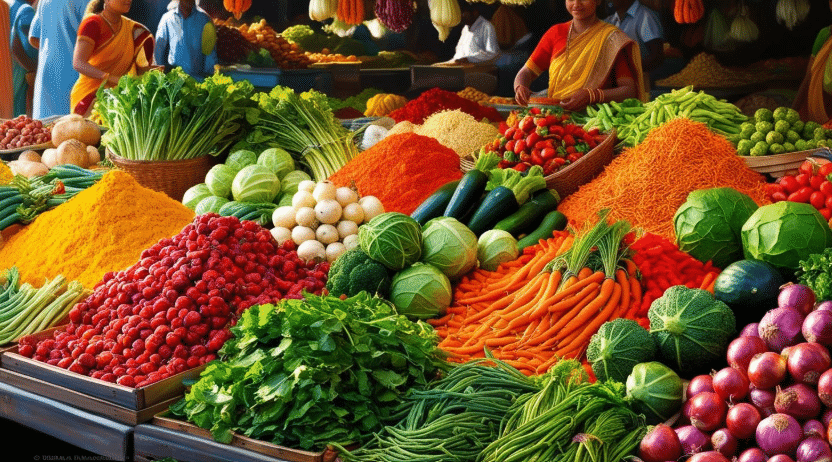
Short Answer Questions
(i) Why is it important to sprinkle water on vegetables?Ans: To keep them fresh and prevent them from drying out.
(ii) What are some signs that a vegetable is spoiling?
Ans: Discoloration, soft spots, bad smell, and mold.
(iii) Name two vegetables that can stay fresh for a longer time.
Ans: Potato, Onion
(iv) Why should vegetables be stored in a cool place?
Ans: To slow down the spoiling process and keep them fresh longer.
(v) What is the purpose of sorting vegetables before selling them?
Ans: To ensure that only ripe and good-quality vegetables are sold, while the unripe or spoiled ones are set aside.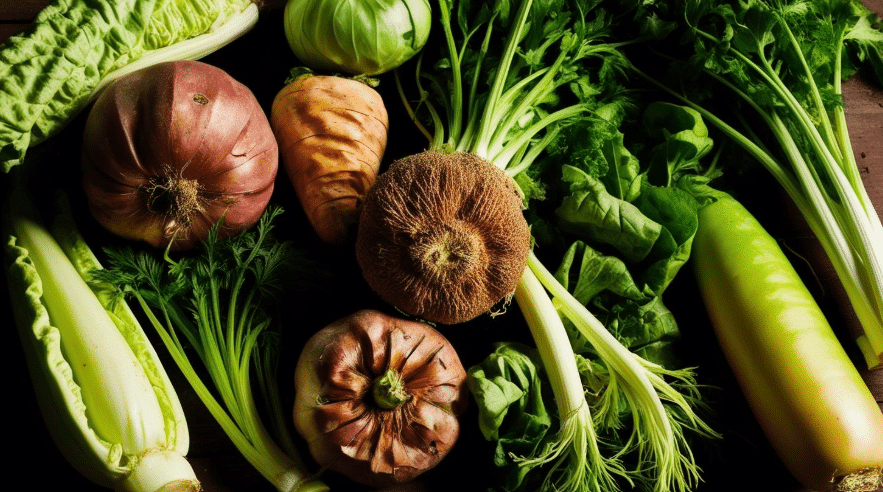
Multiple Choice Questions
(i) Which of the following vegetables is likely to spoil the fastest?(a) Carrot
(b) Potato
(c) Spinach
Ans: (c) Spinach
(ii) What is one method to keep vegetables fresh?
(a) Keeping them in a warm place
(b) Sprinkling them with water
(c) Leaving them in direct sunlight
Ans: (b) Sprinkling them with water
(iii) Which vegetable should be sold first to avoid waste?
(a) Freshly harvested vegetables
(b) Previous day’s vegetables
(c) Unripe vegetables
Ans: (b) Previous day’s vegetables
(iv) What is a vegetable mandi?
(a) A place to cook vegetables
(b) A place to buy vegetables in bulk
(c) A place to store vegetables
Ans: (b)A place to buy vegetables in bulk
(v) Which of the following vegetables is smooth to touch?
(a) Potato
(b) Ginger
(c) Cucumber
Ans: (c) Cucumber 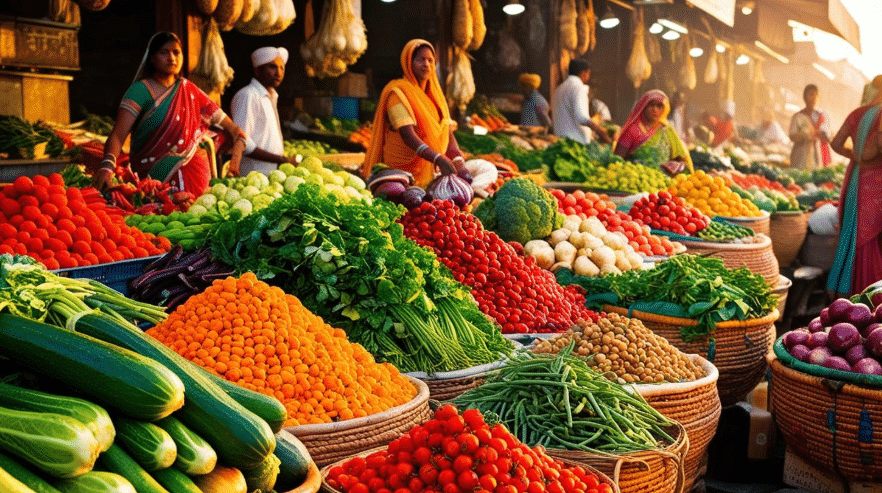
Categorization
Categorize the following vegetables into "Spoil Quickly" and "Stay Fresh Longer":Spinach, Potato, Banana, Tomato, Pear, Chikoo, Pineapple, Gourd, Onion, Cabbage, Cucumber, Grapes, Ginger.
Spoil Quickly:
- Spinach
- Banana
- Tomato
- Pear
- Chikoo
- Grapes
Stay Fresh Longer:
- Potato
- Pineapple
- Gourd
- Onion
- Cabbage
- Cucumber
- Ginger
|
52 videos|352 docs|54 tests
|
FAQs on From Market To Home - 1 Class 4 Worksheet EVS Chapter 15
| 1. What is the process of getting products from the market to home? |  |
| 2. What factors should consumers consider when buying products from the market? |  |
| 3. How can consumers ensure they are making sustainable choices when shopping? |  |
| 4. What are some common challenges faced in the supply chain from market to home? |  |
| 5. How does technology impact the process of getting products from the market to home? |  |





















